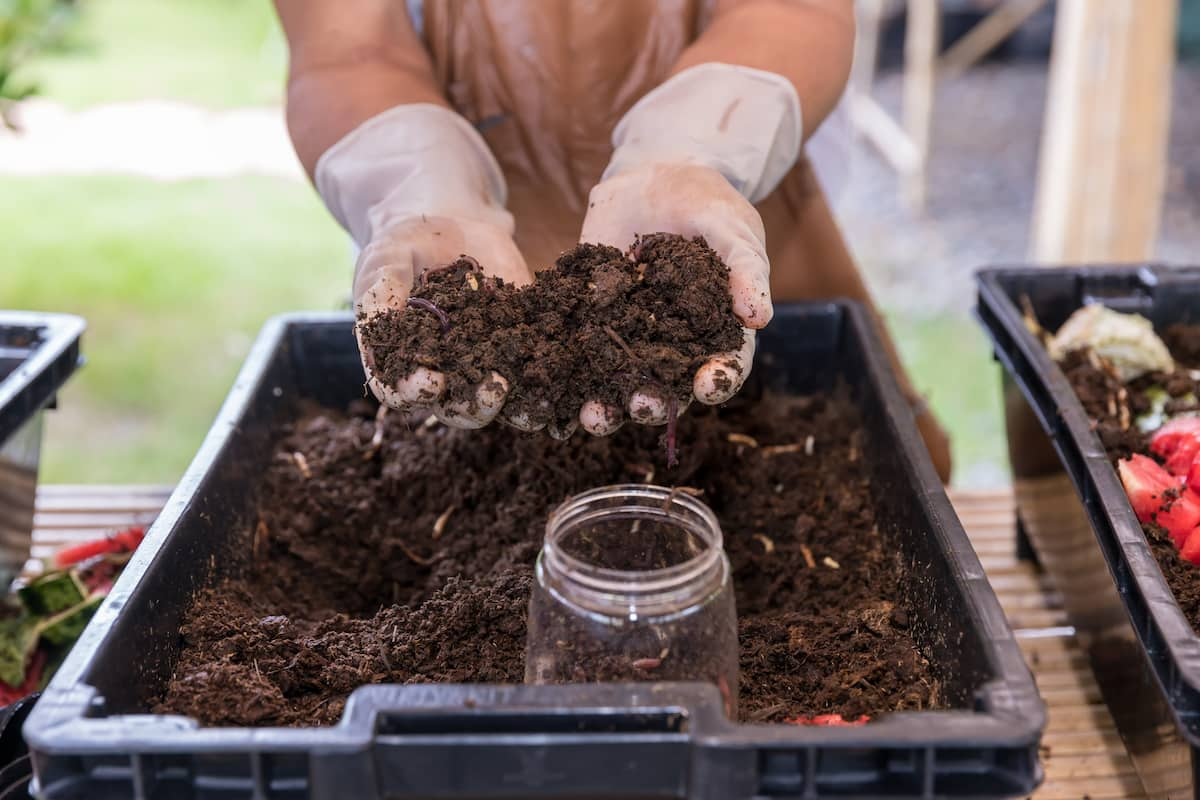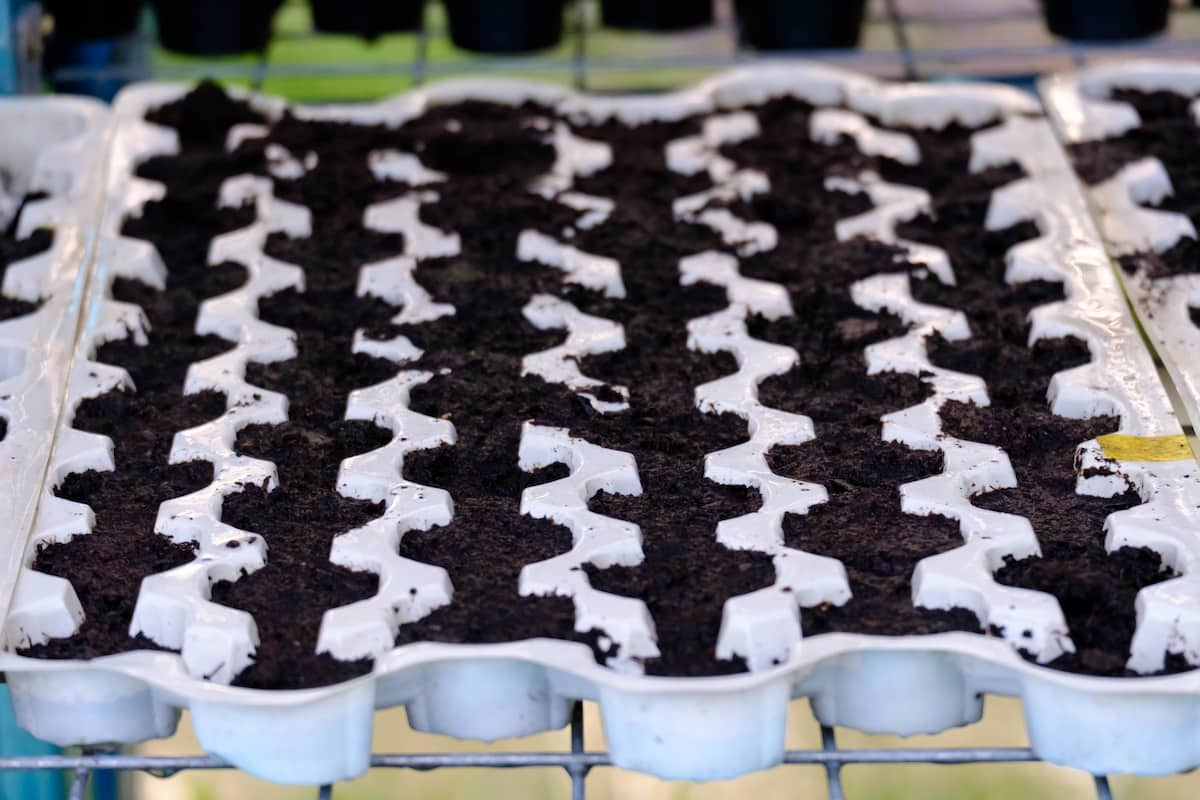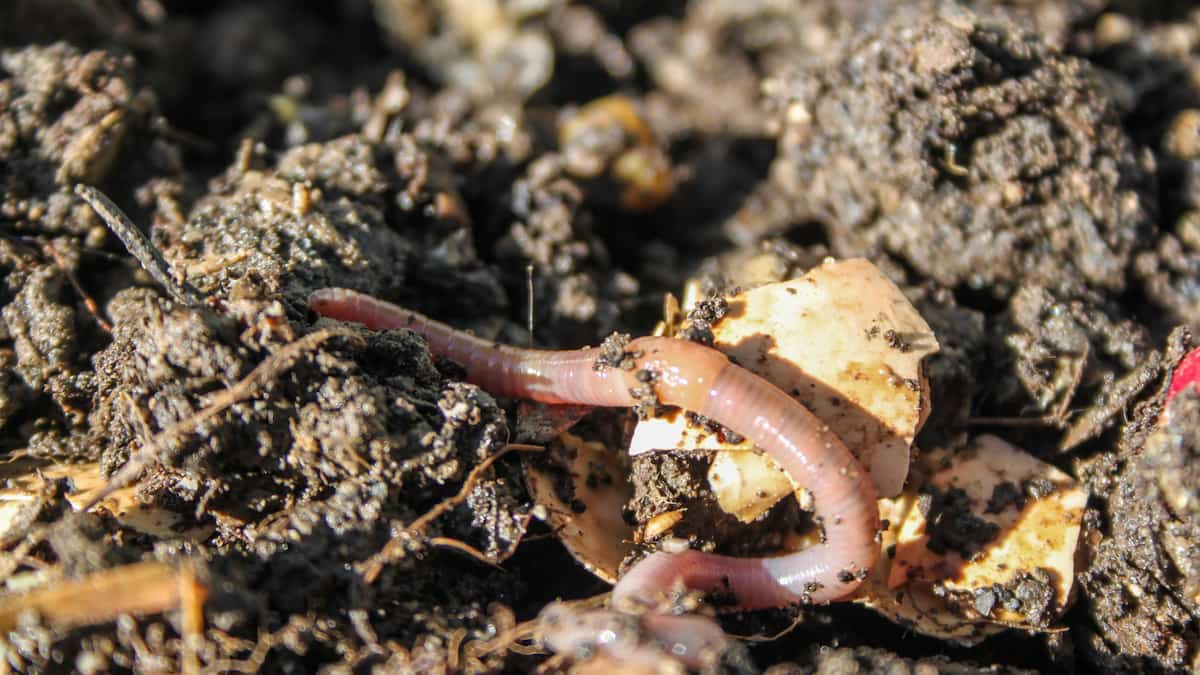Earthworm manure makes nutrient-rich vermicompost, also known as worm castings. Gardeners and farmers highly value this type of compost because it improves soil fertility and plant growth. In this article, we will discuss the nutrients found in vermicompost and how they can benefit plant growth.

Nutrients of Vermicompost
Nitrogen (N)
One of the primary nutrients found in vermicompost is nitrogen. Plant growth requires nitrogen, which forms chlorophyll for photosynthesis.Without nitrogen, plants will become stunted and yellow, and their growth will be slowed. Vermicompost contains a significant amount of nitrogen, ranging from 1.5% to 2.5%, depending on the feedstock used to create the compost. The nitrogen in vermicompost is in a form that is readily available to plants, meaning that it can be easily absorbed and used for growth.
Phosphorus (P)
Phosphorus is another important nutrient found in vermicompost. Phosphorus is essential for the growth and development of plant roots, flowers, and fruits. It also forms ATP, the main energy source for plant cells. Vermicompost typically contains between 0.5% and 1% phosphorus, which is lower than the levels of nitrogen and potassium found in the compost. However, the phosphorus in vermicompost is in a form that is readily available to plants, making it an important source of this nutrient for growing plants.
Potassium (K)
Potassium is another essential nutrient found in vermicompost. Potassium is necessary for regulating water in plant cells and is critical for developing strong stems and roots. It is also essential for forming sugars and carbohydrates, which plants use for energy. Vermicompost typically contains between 0.5% and 1% potassium, similar to the phosphorus levels found in compost. Like phosphorus, the potassium in vermicompost is in a form that is easily absorbed by plants, making it an important source of this nutrient for plant growth.
Calcium (Ca)
Calcium is a substance that is important for the development of thick cell walls in plant cells and is, therefore, essential for the growth of plants. Calcium is also important for regulating nutrient uptake in plants and is critical for developing healthy roots. Vermicompost typically contains between 0.5% and 1% calcium, making it a good nutrient source for growing plants. The calcium in vermicompost is in a form that is easily absorbed by plants, making it an effective way to provide this nutrient to plants.
Magnesium (Mg)
Magnesium is another important nutrient found in vermicompost. Magnesium is required for the process of photosynthesis and is an essential component in the production of chlorophyll. It is also important for activating enzymes in plant cells and is critical for metabolizing carbohydrates and proteins. Vermicompost typically contains between 0.2% and 0.5% magnesium, making it a good nutrient source for plant growth. The magnesium in vermicompost is in a form that is easily absorbed by plants, making it an effective way to provide this nutrient to plants.
In case you missed it: Home Garden Soil Testing: Where to Test for Nutrients and Free Methods

Trace Elements
In addition to the major nutrients discussed above, vermicompost contains a range of trace elements important for plant growth. These include iron, zinc, copper, manganese, and boron. While these nutrients are only required by plants in small amounts, they are critical for proper functioning plant cells and metabolic processes.
Iron (Fe)
Iron is a component that is necessary for the development of plants and the production of photosynthesis. Without sufficient iron, plants will become yellow, and their growth will be stunted. Vermicompost typically contains between 50 and 200 ppm (parts per million) of iron, making it a good nutrient source for growing plants. The iron in vermicompost is in a form that is easily absorbed by plants, making it an effective way to provide this nutrient to plants.
Zinc (Zn)
Zinc is another important nutrient found in vermicompost. Zinc is necessary for developing enzymes and proteins in plant cells and is critical for regulating plant growth. Vermicompost typically contains between 30 and 100 ppm of zinc, making it a good nutrient source for plant growth. The zinc in vermicompost is in a form that is easily absorbed by plants, making it an effective way to provide this nutrient to plants.
Copper (Cu)
Copper is essential for plant growth and for developing enzymes and proteins. Copper is also important for the formation of chlorophyll and is critical for photosynthesis. Vermicompost typically contains between 5 and 25 ppm of copper, making it a good nutrient source for growing plants. The copper in vermicompost is in a form that is easily absorbed by plants, making it an effective way to provide this nutrient to plants.
Manganese (Mn)
Manganese is another important nutrient found in vermicompost. Manganese is necessary for developing enzymes and metabolizing carbohydrates and proteins. Vermicompost typically contains between 50 and 200 ppm of manganese, making it a good nutrient source for plant growth. The manganese in vermicompost is in a form that is easily absorbed by plants, making it an effective way to provide this nutrient to plants.
Boron (B)
Boron is a chemical that is required for the development of plant cell membranes as well as reproductive structures. Boron is necessary for the growth of plants. Vermicompost typically contains between 1 and 5 ppm of boron, making it a good nutrient source for growing plants. The boron in vermicompost is in a form that is easily absorbed by plants, making it an effective way to provide this nutrient to plants.
In case you missed it: Transform Kitchen Waste into Nutrient-Rich Organic Fertilizer: A Step-by-Step Guide

Conclusion
Vermicompost is a valuable source of nutrients for growing plants. The compost is rich in nitrogen, phosphorus, potassium, calcium, magnesium, and trace elements like iron, zinc, copper, manganese, and boron. The nutrients in vermicompost are in a form that is readily available to plants, making it an effective way to improve soil fertility and plant growth.
Using vermicompost in the garden or farm can increase yields, healthier plants, and improve soil quality. Whether you are a gardener, farmer, or just someone who wants to improve the health of their plants, vermicompost is a nutrient-rich and sustainable option for improving soil fertility and plant growth.
- Feed Your Flock for Less: Top 10 Tips to Save on Chicken Feed
- Ultimate Guide to Ossabaw Island Hog: Breeding, Raising, Diet, and Care
- Hatching Answers: The Top 10 Reasons Your Chickens Aren’t Laying Eggs
- Eggs and Economics: Breaking Down the Cost of Raising Backyard Chickens
- Defend Your Greens: Proven Methods to Keep Iguanas Out of Your Garden
- Ultimate Guide to Cinnamon Queen Chicken: A Comprehensive Guide for Beginners
- Ultimate Guide to California Tan Chicken: Breeding, Raising, Diet, Egg-Production and Care
- Ultimate Guide to Marsh Daisy Chicken: Breeding, Raising, Diet, and Care
- 10 Types of Chicken Farming Businesses You Can Start for Profits